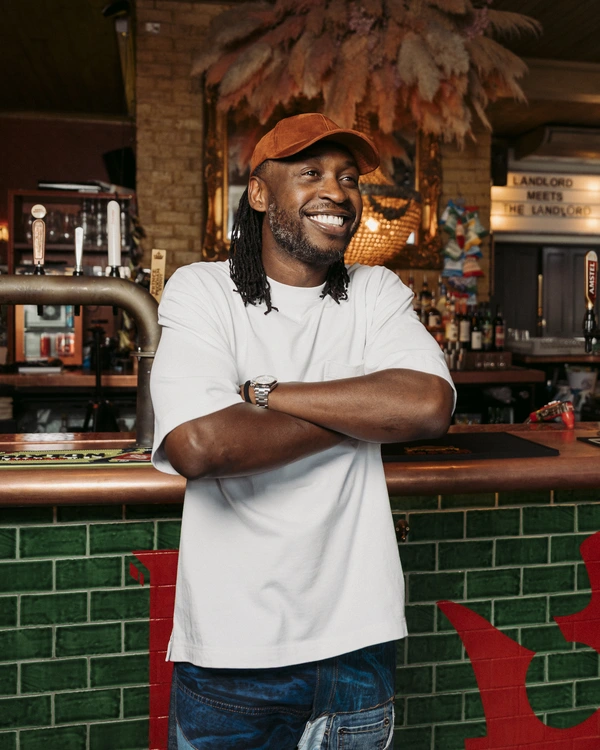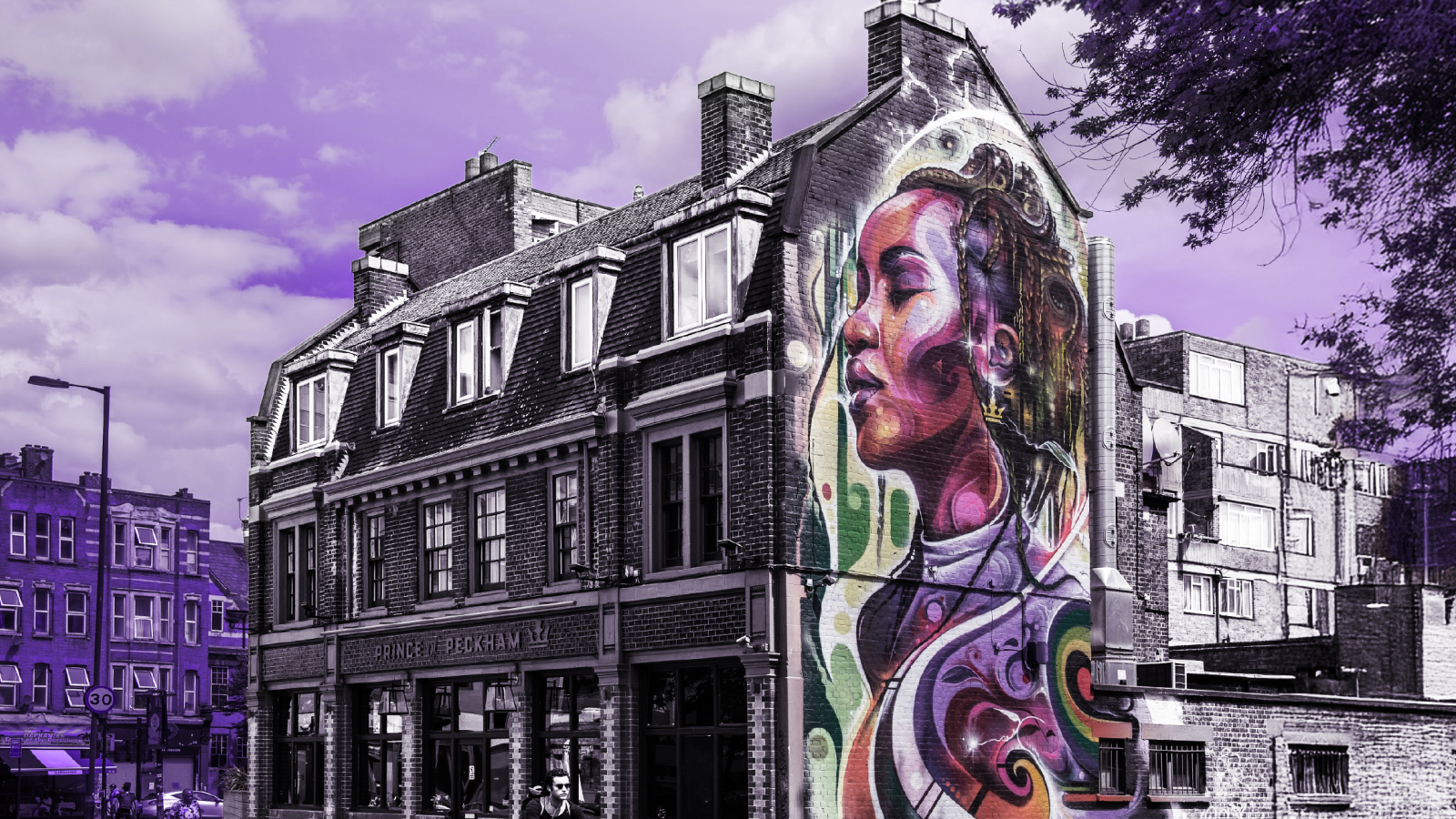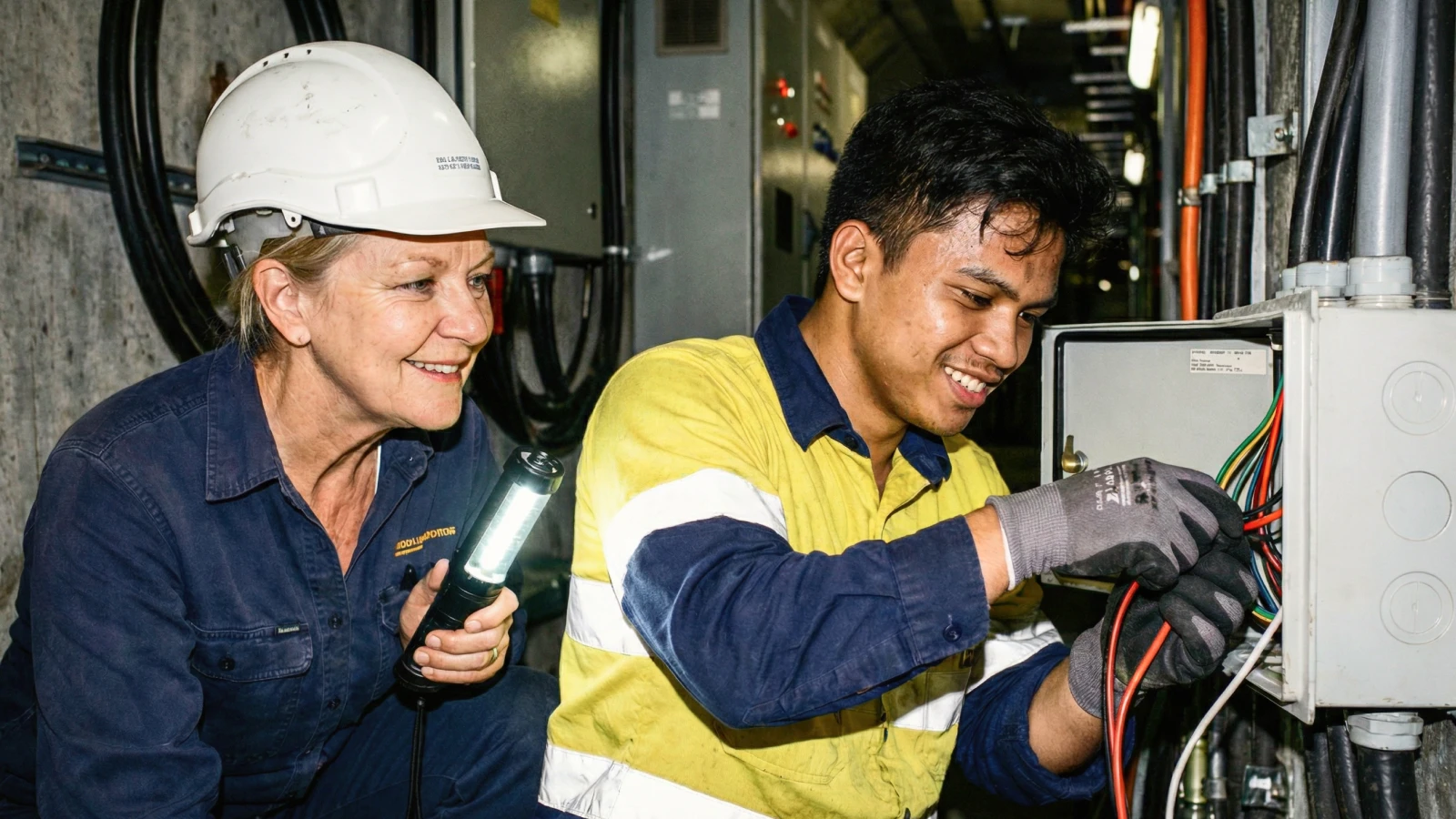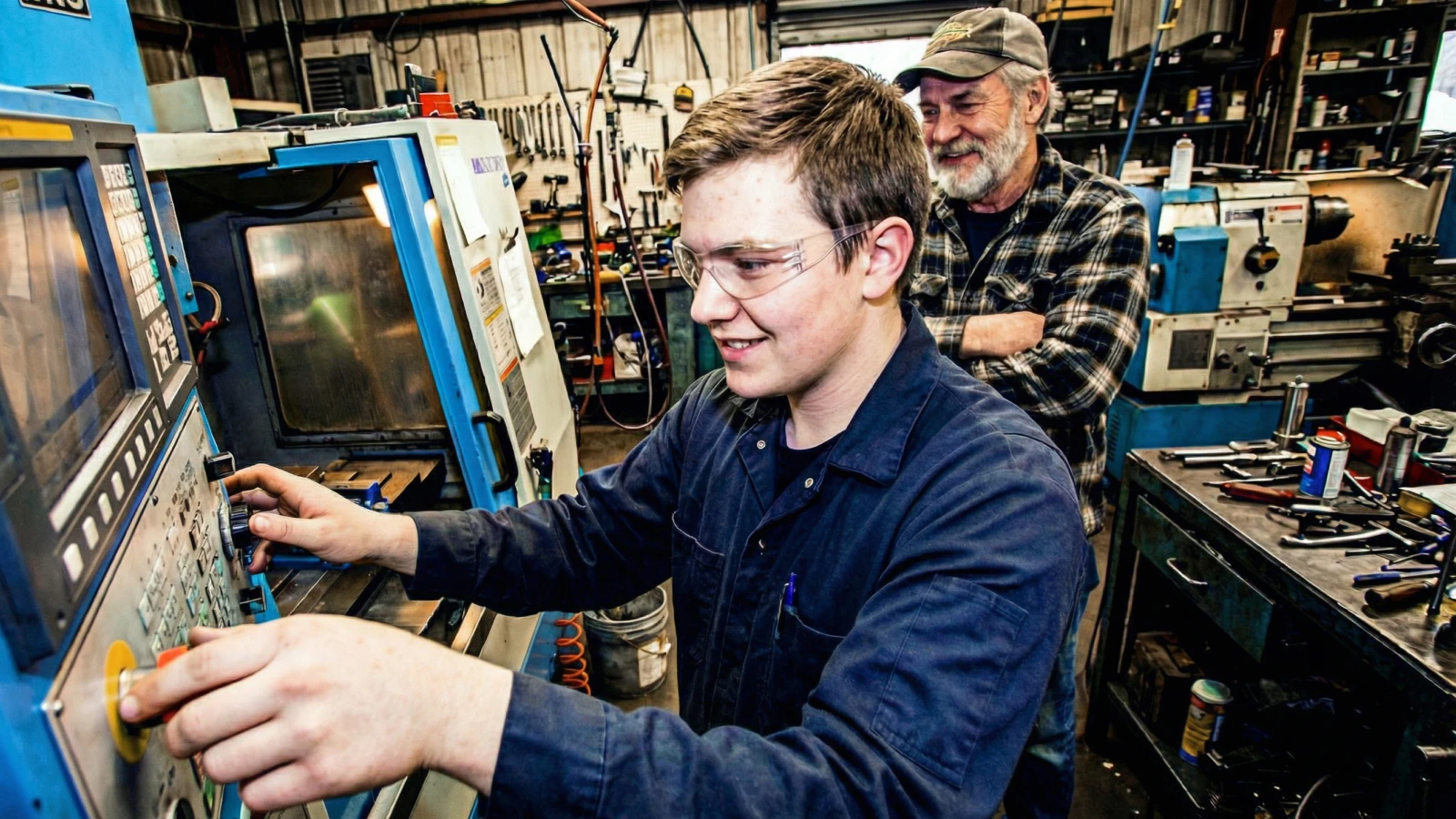Clement Ogbonnaya gets pubs. But more than that, he understands exactly what it takes to make people feel part of their fabric.
The oft-quoted pearl of wisdom, “people don’t remember what you say or do, only how you make them feel”, may be a bit of a cliché in the hospitality playbook.
But for Clement, the brains behind South London’s award-winning Prince of Peckham and Queen of the South pubs, it’s a guiding philosophy.
For every pint poured, playlist curated, and community event hosted under the watch of the CEO of The Village People pub group, there’s a palpable sense of warmth, belonging and genuine connection – the very qualities the Nigerian-born entrepreneur once found missing in the hospitality industry he grew up around.
“That feeling of belonging has so many different layers. I realised as I got older, when it comes to partying or going out, everyone lives their best life. Your anxiety and problems are left at the door and everyone becomes part of this one-space journey. But there wasn’t one that represented me.”

The art of creating an inclusive business
Clement, who founded the Prince of Peckham after working as a promoter for clubs across the UK capital, realised that despite the area he grew up in boasting an eclectic mix of cultures, with a heavy weighting towards West African influences, pub culture in his local area still made a lot of locals feel alienated.
In conversation, he’s strikingly warm and disarmingly open, a people-first CEO who seems to know every face that walks through the door. Stylish without being showy, witty without pretense, Clement exudes an easy charisma that makes it clear why his venues have become community magnets.
When we speak, he’s perched at a table in one of his pubs, right in the thick of things, juggling the odd question from a staff member or greeting punters mid-sentence, completely at home in the world he’s built. His mind seems to fire in all directions at once. He laughs that his ADHD probably has something to do with it, but his focus always circles back to the same mission: creating inclusive spaces that make people feel seen.
Family, heritage and pride sit at the heart of that mission. Fiercely proud of his Nigerian-British roots, Clement is determined to give marginalised communities a bigger stake in the UK’s pub culture, to show that belonging in these spaces shouldn’t come with conditions.
“One of my proudest moments was during our opening with a small number of friends and a few members of the public,” he says.
“Two elderly ladies came up to me and told me they’d been living in the local estate for 12 years and never walked into the pub that used to be there. They said, ‘you’re the first person that’s taken on this pub that made us feel welcome, you’ve given us hope.’”
Turning Passion into a Thriving Enterprise
The rewards weren’t just emotional either. Six years later, the pub would generate almost £4m in revenue in a year, win the 2023 Be Inclusive Hospitality Pub of the Year award and form part of the broader Village People group, established in 2022. A lot of that success was due to the uniqueness of that offering.
Both Prince of Peckham and Queen of the South, which opened in 2023, are so much more than pubs. Sure, they boast all the usual things you’d expect to find in similar spaces: private event-hiring, traditional pub cuisine, drinks. But culturally rich offerings like Caribbean food from the likes of catering companies like Original Flava and White Men Can’t Jerk, famous DJ residencies and popular and affordable dance nights that rival much more expensive and exclusive venues, give them the edge.
“When we found out that we had turned over £4 million at Prince, I realised it was a lot more serious than I thought. With great power comes responsibility,” Clement adds.
An unlikely contributor to their success, beyond a smart business model, was the global pandemic. Unlike a number of ailing businesses impacted by lockdowns and government restrictions, under Clement’s leadership, the pub was able to thrive.
“My wife is a doctor. She was on the front line. It was a challenging time for a lot of people – especially in terms of mental health and loneliness. But it was a period that definitely propelled our business to shore.
“It meant I could fall back, take stock of what we have and how we were going to move forward.”
Battling Economic Headwinds
But it hasn’t all been plain sailing. No matter how popular the venues remain, today’s economic pressures have taken a toll, with Queen of the South coming dangerously close to closure in recent months.
On weathering this financial strain, in part through crowdfunding after former partner Young’s threatened to close the pub down unless Clement bought the freehold, the CEO is blunt: “It’s s***.” He adds: “It has been really, really challenging to be honest with you… it’s been treacherous.”
Employer National Insurance Contribution costs, which, after the 2024 Budget, rose from 13.8% to 15% in April 2025, while the secondary threshold changed from £9,100 to £5,000, also bit hard.
Recent figures from the Office for National Statistics also show that the hospitality sector has been hit harder than any other in terms of losing payrolled employees. In September, it saw a decrease of 59,000 people.
Clement says he’s still hiring, even as many venues downsize.
“This is a tough time for everyone,” he admits. “It doesn’t just impact employers, it impacts employees too. I try to be really tolerant and understanding of people. For instance, if someone’s late once, twice, even three times, it’s easy to just dismiss them, but for me, there’s always a reason.”
That desire to understand speaks volumes about his leadership style. “If there’s a disconnect, I want to understand it,” he says.
“Maybe something’s going on that’s making them feel like work isn’t that important right now. I’d rather walk in that employee’s shoes and find the best way to help them improve. It’s about marrying the business’s needs with the staff’s wants.”
In anticipation of this year’s Budget, which has been accompanied by whispers of more tax rises for businesses like his, Clement is frustrated, but pragmatic almost to the point of being fatalistic.
“We’re one of few sectors providing jobs for young people and local communities and yet we’re squeezed and squeezed. My corporation tax came out last week and I tell you what, it was a lot… but what can you do? You have to pay it.
“It’s one of those funny ones where it’s on your radar, but it’s just something you have to watch and adjust to.”
Embracing Technology
Another thing he has adjusted to, is incorporating tech into his primarily face-to-face business, a move more businesses are making right now. But technology adoption in SMEs is still emerging. Employment Hero data shows that 44% of employees use AI tools in their jobs at least a few times a month, while only 9% use them daily.
Clement is one of the businesses seizing this opportunity by the horns. He already grasps the benefits of weaving tech into the background infrastructure: design, production, coordination and project workflows. As he says:
“Pubs are a face-to-face business. You can’t replace that with AI. It’s more behind the scenes: back house control, production of flyers, artwork, project management tools,” which leaves yet more time and effort to pour into interpersonal services.
Building a Supportive Work Environment
Even amid the pressure to adapt – to take on technology, to evolve with shifting consumer habits, to survive rising costs – Clement’s sense of purpose hasn’t wavered. His employment practices are as inclusive as his branding – at a time when unemployment and a lack of vacancies among young people has put them in precarious situations,
“My workforce is made up of young people: young women, young black men, men of colour, people with disabilities, neurodivergent staff,” he explains, adding that although “the system wasn’t built” for underrepresented groups in the pub industry, or indeed his two young daughters, who also serve as inspiration for his passion to succeed, he’s proud to build one that is.
As he puts it, “there’s always going to be a need for human interaction, for that social interaction. There will always be a need for community centres and pubs and people to meet face to face.”
Balancing Progress and Preservation
Clement’s story captures something larger about this moment: the tension between progress and preservation. It’s about how communities – and the people who hold them together – can embrace innovation without losing their essence.
As a leader, a label that Clement rejects, he says running a successful workforce and community-focused business is “also about having the ability to pivot and be malleable. It’s not a one-size-fits-all kind of scenario. That’s just not how I live.”
His outlook reflects a deeper kind of resilience that prizes adaptability without compromise, where flexibility and authenticity co-exist, and where change becomes a tool for strengthening, rather than replacing, community.
Five Key Elements of Hospitality AI Can’t Replace:
- Genuine Connection
A smile, a laugh, a warm welcome. Real human energy isn’t something you can automate. People remember how you make them feel. - Cultural Understanding
AI might analyse trends, but it will never live culture or serve a customer with intuition. True hospitality means reflecting the people and stories that shape your community. - Empathy
Hospitality is emotional intelligence in action. You have to notice who feels left out and know how to make them feel at home. - Community
Algorithms don’t build trust. Real connection comes from showing up, listening and creating spaces where people belong. - Character
Charisma can’t be programmed. Warmth, humour and authenticity give a place its personality in ways technology will never match.























